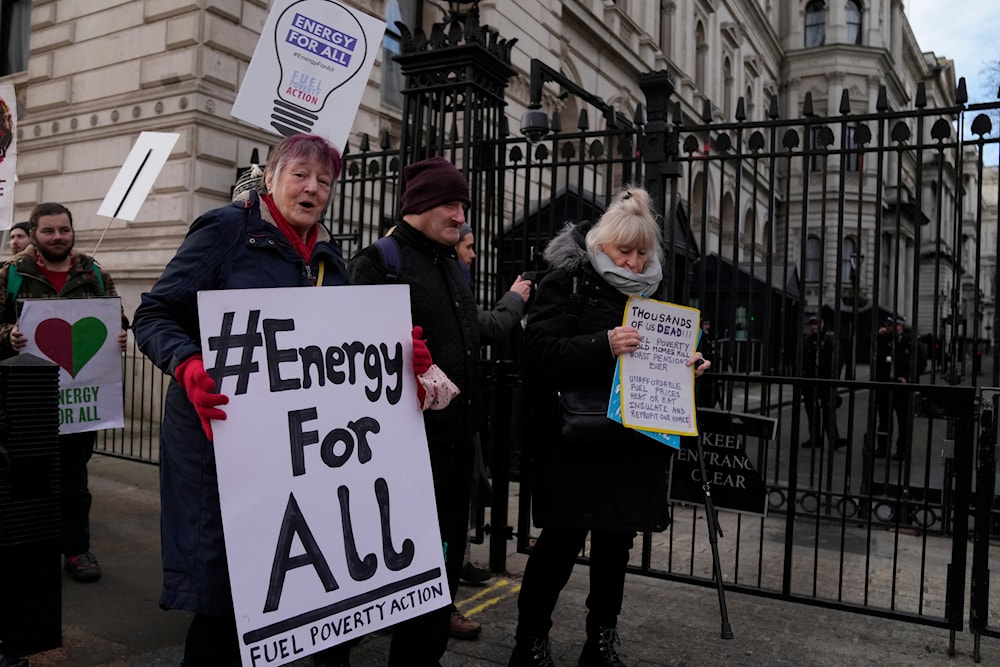UK poverty worsens: Additional 1mln people in poverty in 2021-2022
The poverty gap in the UK continues to increase amid an increasing cost of living crisis.
-

Protesters from the Fuel Poverty Action group demonstrate over the number of excess deaths in Britain due to pensioners unable to heat their homes in winter due to rising fuel costs outside Downing Street in London, on Jan. 19, 2023 (AP)
Joseph Rowntree Foundation (JRF) released a new analysis showing that due to the intensifying cost-of-living crisis in the UK, a million more people were living in poverty in 2021-22 than in the previous year.
The report stated that an increasing number of people are unable to afford food or pay energy bills as the number of people who were in poverty increased from a total of 13.4 million people, including 3.9 million children, to 14.4 million people, including 4.2 million children, as of 2021-22.
Paul Kissack, Group Chief Executive of the JRF, said, “It has been almost twenty years and six Prime Ministers since the last prolonged period of falling poverty in the UK. Instead, over the last two decades, we have seen poverty deepen, with more and more families falling further and further below the poverty line."
According to the report, six million people had incomes far below the standard poverty line and were in "very deep" poverty in 2021-22. It added that the poverty gap, or the amount of money needed for the incomes of the poorest people to meet the poverty line, has grown wider as the latter on average need to more than double their income to overcome poverty.
Any couple with two children under the age of 14 whose annual household is below £14,600 ($18,519) is currently considered in "very deep" poverty. In addition, larger families, disabled people, part-time workers, the self-employed, and people living in rented accommodations are currently among those facing particularly high levels of poverty.
As inflation in the UK is still running at twice the target level, benefits are way behind the rising prices, unemployment is rapidly increasing, earnings are still below their 2008 levels, and housing costs are highly increasing. It is unclear what more obstacles will show up in the future, according to the JFR report.
5% rise in UK energy bills
British citizens will start their new year with a 5% hike in energy bills, British power regulator Ofgem announced on January 1.
The company said the decision was driven by the global geopolitical tensions affecting the oil and gas markets, including the war in Ukraine that is approaching its two-year mark and the recent military escalation in the Red Sea between the US-led maritime coalition and Yemenis, who are carrying out operations targeting Israeli and "Israel"-bound ships in response to the occupation's ongoing genocide in Gaza.
From January 1 to the first of March, households will add 94£ to their annual bill, the firm said.
Adjustments to electricity costs are introduced every three months, with a cap on how much suppliers can charge citizens as per consumption set by Ofgem. The change will see cost rising from 1,834£ in 2023 to 1,928£ in 2024.
Ofgem CEO Jonathan Brearley acknowledged that many people are having “a difficult time” and that “any increase in bills will be worrying."
The cap is applied to unit rates and standing charges, meaning that the more energy a household uses, the more they will pay. Additionally, a household's location affects the bill since the cap on electricity prices varies slightly across different regions of the country.

 3 Min Read
3 Min Read








